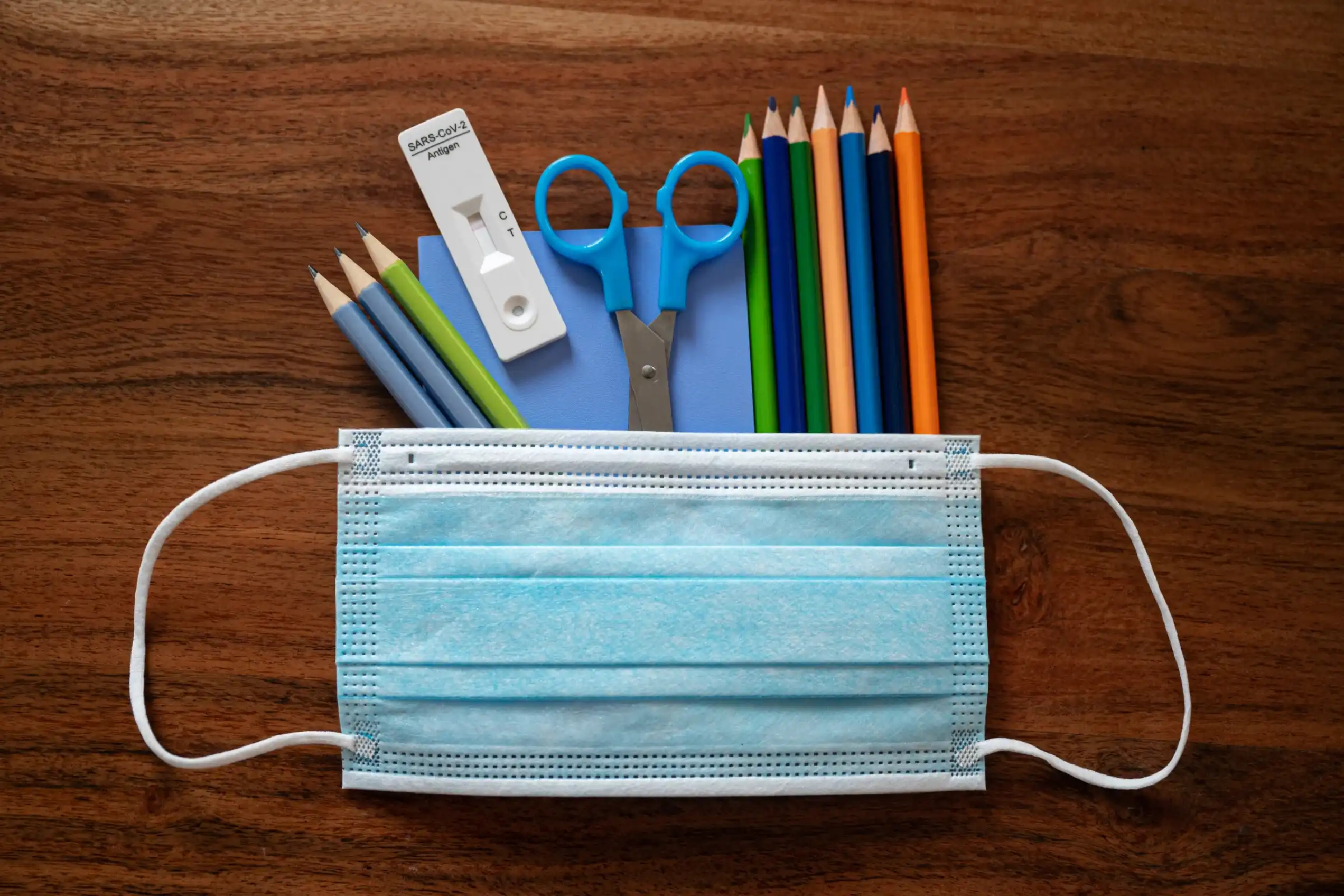Parent's Community Corner 🏠
Welcome to your community! Dive into our free curated resources, and discover tools and tips to improve your skills as a caregiver. This is your space — if you can think of a way to improve it, let us know! We’re here to answer questions and provide help for your parenting journey.
Homework help tips for parents
Discover practical strategies to enhance your teen's homework routine and boost their academic success.
Feature one
Fuel up
Begin homework time with a nourishing snack and a meaningful break to help your teen recharge. This simple step can transform their focus and energy levels.

Feature two
Routines, baby!
Establish consistent routines for homework, meals, and sleep to help streamline your family's daily activities. Set a regular time and quiet place for homework to help your teen develop good study habits.

Feature three
Build in breaks
Implement a schedule of short breaks during study sessions to help maintain your teen’s concentration. A good rule of thumb is a 15-minute break for every hour of study.

Feature four
Disconnect from distraction
Reduce distractions by keeping electronic devices away during homework time. Consider using apps that help focus by silencing notifications.

Feature two
Balancing independence vs. Caregiver involvement
Provide a balanced level of support that respects your teen's growing need for independence. Engage in discussions about their homework routine and adapt based on their feedback.

Feature two
Monitor your own affect
Be mindful of your demeanor during homework time. Teens are sensitive to stress and frustration in their parents, so keep interactions positive and constructive.

Feature two
School confidence is a thing
Address school challenges proactively. Develop strategies with your child to overcome obstacles, ensuring they feel supported and their efforts are recognized.

Feature two
Know when it's time to call in reinforcements
Recognize signs that suggest needing extra help, such as increased frustration or difficulty with assignments. Explore options like tutoring, study groups, or talking to teachers for additional support.

Downloadable parenting guides

GUIDE: Parents' guide to Parent-Teacher conferences

GUIDE: How to talk to your teenager about their mental health

GUIDE: Parent's guide to social media safety for teens

GUIDE: Parents' Guide to Post-Pandemic Learning Recovery

GUIDE: Parents' Guide to Having Difficult Conversations with Teens

eBook: Surviving the teen years
Trending questions 📈
Find answers to commonly asked questions from parents like you.
Dealing with your teen's challenging behaviour can feel overwhelming, but remember that you're not alone. Many parents struggle during the teen years as their child’s mood swings and they begin to break away from the family to form their own identity. The teenage years are a tumultuous time, marked by significant physical and emotional changes. These changes often drive impulsive and emotionally charged behaviour, particularly between the ages of 14-16.
Focus on Your Teen's Strengths: Highlight their abilities, such as their capacity for meaningful conversations. Initiate quality time to listen more and strengthen your bond. By dedicating time to listen and engage with your teen, you acknowledge their need for attention, which may help alleviate feelings of jealousy or neglect they might have when you're attending to others.
Embrace Vulnerability: In your conversations with your teen, admit that you may not have always met their expectations. Showing vulnerability can open up a dialogue, allowing your teen to express their feelings and perhaps point out areas where they feel you could improve. Apologising and asking for their input not only validates their feelings, but also empowers them to be part of the solution.By approaching the situation with understanding, focusing on positive traits, and showing vulnerability, you can navigate these challenging times together, strengthening your relationship along the way.
Step 1: Noticing
Acknowledge their feelings. Mentioning that you've noticed something's off can prompt an internal response from them, even if you don't hear about it.
Step 2: Validation
Verbally validate their feelings. Even before they open up, this can provide them with internal relief and a sense of being understood, even if they don't express it outwardly. Phrases like, “I can tell this is really important to you” or “I know how much effort you made with ____” are a good place to begin.
Step 3: Invitation
Offer an open invitation to talk. This shows you value and respect them, and are willing to make time for them. This can be comforting even if they don't immediately open up.
Step 4: Affection and Assurance
Reassure them of your love. Knowing they are loved brings comfort and confidence, easing their internal pressures and helping prevent deeper mental distress.
Step 5: Be Consistent
Your teen may not feel safe to open up to you when you use the above steps if your relationship usually involves unhealthy criticism, contempt or defensiveness. Your child has to trust that you’re a safe space for their vulnerability. Ensure you’re modelling the above steps often to keep the flow of communication open.
These five steps, while seemingly simple, play a crucial role in supporting your teen through tough times, offering them a lifeline out of their distress.
Every parent will, at some point, need to address their teenager's behaviour. The challenge lies in doing so without resorting to criticism, which can damage your relationship.
Criticism vs. Correction
Criticism aims to modify behaviour through negativity, leading to defeat rather than improvement. Effective correction, on the other hand, employs positive methods to encourage change, preserving the crucial connection between parent and teen. Criticism is laden with judgement and often paired with condemnation. This undermines the very relationship you're trying to strengthen, and is damaging to your teen’s self-esteem.
The Art of Positive Correction
Correction focuses on improvement and growth — approaching challenges with gentleness, empathy, and a shared goal of betterment. Explain to your teen the negative impact their behaviour had on them and others around them. Discuss what they can do in future to repair their relationships, and avoid the negative behaviour. This approach not only fosters better behaviour but also strengthens the bond between you and your teenager.
Building a teenager's self-confidence needs a multifaceted approach that we call “The 7 P’s." Each "P" represents a vital step in nurturing a supportive environment that encourages growth and self-assurance in your teen.
1. Presence: Your consistent presence is foundational. It reassures your teen of your unconditional support and love, even as they navigate their journey toward independence.
2. Praise: Regular, genuine praise for both their efforts and achievements plays a crucial role in reinforcing their sense of self-worth and competence.
3. Propping: Actively supporting your teen's decisions fosters their ability to make choices confidently, knowing you trust their judgement.
4. Partitioning: Teaching your teen to recognize and appreciate their strengths, while understanding their limitations, helps balance their self-perception.
5. Promoting Self-Improvement: Encourage self-reflection and growth, emphasising the importance of kindness and helpfulness over superficial attributes.
6. Promotion of Independence: Gradually allowing more independence helps teens develop the confidence to handle challenges and make decisions on their own.
7. Positivity: Cultivating a positive environment, with encouragement for positive self-talk and affirmations, lays the groundwork for a strong, confident mindset.
Together, these strategies form a comprehensive approach to help your teen build and maintain a healthy level of self-confidence.
Understanding and navigating peer pressure is a pivotal part of parenting as children grow into adolescents. During these years, children often look to their peers rather than their parents for guidance on how to act and what to believe.
Here's how you can support your child through this critical time:
Recognizing Peer Pressure
Peer pressure is a normal part of adolescence, driving children to seek approval and acceptance from their age group. While it can lead to negative behaviours like smoking or unsafe social media use, peer influence can also have positive effects, offering friendship, support, and positive role models.
Strategies for Parents
Open Dialogue: Begin conversations about alcohol, drugs, and other risky behaviours before your child is exposed to them. Early discussions can help set expectations and establish open lines of communication.
Role-Play Scenarios: Practice with your child how to say "no" to risky behaviours. Role-playing can help them feel more prepared when faced with real-life situations.
Build Self-Esteem: Children with strong self-esteem are more likely to resist negative peer pressure. Celebrate your child’s achievements and encourage their interests.
Encourage Wise Friendships: Guide your child in choosing friends who share their positive values and self-esteem. This can influence your child to make healthy choices.
Use Code Words: Create a code word your child can use when they need help getting out of an uncomfortable situation without alerting their peers.
Be the Excuse: Allow your child to use you as an excuse to avoid peer pressure ("My parents will ground me for a month if I do that" or “I can’t go — My mom is making me go to the mall with her”). Being the excuse gives your child a safe way to opt out of a situation when a simple “no” isn’t respected by their peers.
Supporting Yourself and Your Child
Remember, it's normal for adolescents to seek independence, but they still need parental guidance and support. Stay calm when discussing peer pressure and make an effort to understand current trends and challenges. Most importantly, continue to engage in your child’s life, showing interest in their world and maintaining family activities that include them.
By approaching peer pressure with understanding, preparation, and open communication, you can help your child navigate these challenges successfully, fostering their independence while guiding them toward making healthy decisions.
Parents play a crucial role in guiding their children's choices about alcohol and other drug use. A strong, open relationship between parent and child is a key factor in steering kids away from unhealthy experimentation.
Here's why it's essential to have these conversations:
Parental Influence is Strong: Despite appearances, children value their parents' opinions and heed their advice. Discussing the dangers of alcohol and drugs can help shape their attitudes and decisions.
Early Conversations Are More Effective: Talking to your children about substance use before they encounter it increases the likelihood they'll follow your guidance. Frequent, honest discussions can fortify them against peer pressure.
Young Children Are at Risk: Children begin forming opinions about alcohol at an early age, with some experimenting as young as nine. Early dialogues can counteract positive portrayals of alcohol and drugs they might see in media or with peers.
Adolescence Increases Experimentation Risks: The likelihood of trying alcohol and drugs escalates with age. Early intervention can significantly impact their choices, reducing the temptation to engage in risky behaviours.
Silence Is Not Neutral: Without parental guidance, children may underestimate the risks of alcohol and drugs. Openly addressing these topics sets clear expectations and helps dispel myths they may have heard.
By initiating discussions about alcohol and other drugs with your children, you're not only informing them of the risks but also reinforcing your role as a trusted source of guidance. This proactive approach can greatly influence their decisions, leading to healthier outcomes during their formative years.
Cultivating patience as a parent is essential for maintaining a harmonious relationship with your child. Here’s how you can manage impatience and foster a positive environment:
Discover Your Triggers: Identifying situations that provoke impatience allows you to strategize and avoid these triggers. Common triggers include running late, tantrums, and feeling rushed.
Prepare for Busy Mornings: Planning ahead, like laying out clothes or packing snacks the night before, can mitigate morning chaos and prevent impatience.
Develop Coping Strategies: Having a plan for when impatience arises—such as taking deep breaths or pausing the conversation—can help you maintain your calm.
Use the If-Then Technique: Anticipate challenges and plan your response. For example, if my child ignores my request while they are watching TV, then I will pause their show and repeat it, rather than raising my voice.
Establish Support and Communication: Building a foundation of support through connecting with other parents to share frustrations and advice encourages empathy and patience.
Practice Mindfulness: Mindfulness practices like yoga or meditation can enhance emotional regulation, reducing feelings of impatience.
Remember, patience is a skill that can be developed over time. There is no such thing as being perfectly patient, but by identifying triggers and implementing strategies, you can foster a more patient and understanding parenting approach.
Active Listening: Show genuine interest in your teen's life, without pressuring them to share. Being a receptive listener encourages them to open up more over time.
Validate Feelings: Instead of trying to fix every problem, acknowledge and empathise with their experiences. Allow them room to solve their own problems, and instead seek to understand their perspective. This can foster deeper emotional connection.
Demonstrate Trust: Trusting your teen with responsibilities, privileges, and showing faith in their capabilities, can significantly boost their self-esteem and independence.
Explain, Don't Dictate: While setting rules is necessary, explaining the rationale behind them can make your teen feel respected and understood, making compliance more likely.
Offer Praise: Adolescents still seek parental approval and benefit from positive reinforcement. Recognizing their achievements and efforts can enhance their self-worth and your bond with them.
Manage Your Emotions: Maintaining calm in the face of teenage rudeness sets a mature example and keeps communication lines open, even during conflicts. When you do lose your cool, make a point of apologising and demonstrating how to repair relationships.
Enjoy Activities Together: Sharing interests and spending quality time together without the pressure of personal conversations can reinforce your bond.
Prioritise Family Meals: Regular, device-free meals offer a relaxed setting for casual conversations, making it easier for teens to share when more serious topics arise.
Stay Observant: Noticing changes in mood, behaviour, or interests can be crucial. Being attentive allows you to offer support or seek professional help if needed.By integrating these approaches, you can create a supportive and open environment that encourages your teen to connect and communicate freely with you.
Model Calm Behaviour: Aggressive teens are often modelling aggressive parents. Instead, reflect calmness when your teen shows aggression. Speaking softly and slowly can diffuse tension and set a positive example for handling disagreements.
Establish a 'Pause' Habit: Teach the value of pausing during heated moments. Agreeing to discuss issues once emotions have cooled can prevent escalation and promote thoughtful dialogue.
Prioritise Listening: Give your full attention when your teen wants to talk. Listening without judgement shows you value their feelings and perspectives, encouraging open communication.
Demonstrate Healthy Emotional Expression: Remember that our behaviour influences your teen. Managing your emotions and reactions teaches them to do the same, fostering a respectful and understanding family dynamic.
Encourage Affirmation and Empowerment: Constant criticism can damage self-esteem. Instead, focus on respectful communication, recognizing their growth and efforts, to build their confidence.
Maintain Healthy Boundaries: The teen years are about establishing an identity outside of the family unit. Respecting their personal space during this time is critical to helping them feel independent. Set clear family policies on privacy and property to reduce conflicts.
Adjust Your Perspective: Recognize your teen’s growing independence. Treating them as young adults rather than children can mitigate resentment and encourage mature behaviour.
Clarify Anger Limits: Discuss appropriate ways to express anger. Holding them accountable for harmful actions teaches responsibility and empathy.
Introduce Self-Management Techniques: Offer tools for managing anger, such as deep breathing, journaling, or physical activity. Understanding their brain development can help teens learn self-regulation skills. Discuss the hormonal changes they’re going through, and how they are developing.
By employing these strategies, you can navigate the challenges of teenage aggression with understanding and support, guiding your teen toward healthier emotional management and stronger family connections.
Fostering good habits and behaviours in teenagers requires a nuanced approach. It's clear that maltreatment doesn't inspire confidence, but neither does passive hope. What truly works is a combination of modelling, mentoring, and establishing firm-yet-fair boundaries. When you model real assertiveness, it gives your teen the space to do the same.
Assertive communication advocates for clear, calm, and respectful exchanges. It contrasts sharply with passive acceptance, which can lead teenagers to disrespect boundaries, and aggressive communication, which may provoke rebellion or withdrawal.
Key Strategies for Modelling Assertive Communication with Your Teen:
Value Yourself: Start by assuring your teen that disrespectful communication is unacceptable. This affirms your self-worth and sets a precedent for their own value.
Promote Equality: Demonstrate that you do not use disrespectful language either, highlighting the importance of treating each other as equals.
Express Direct Requests: Clearly articulate your expectations for positive behaviour, reinforcing the notion that explicit, respectful requests are more likely to be met positively.
Remain Open to Dialogue: Instead of demands or directives, explain the rules to your teen in terms of their impact on the family. Be open to negotiating and practising flexibility.
Outline Consequences: When discussing rules, clearly explain the repercussions of rule-breaking, linking actions to outcomes in a way that's understandable and demonstrates their impact on others.
Praise Progress: Acknowledge and celebrate steps towards more assertive communication, reinforcing the positive behaviours you wish to see.
Flexibility and Timing: Assertive communication is not about constant enforcement but choosing the right moments for engagement, aiming to strengthen relationships rather than strain them. It involves respecting your teen's rights and needs while also standing firm on important issues.
By mastering assertive communication, you model and mentor the skills your teen needs to navigate their social world effectively. This doesn’t just apply within the family; it's a critical life skill that supports their development into mature adults.
1. Lean In: Choose Curiosity Over Anger
Being curious about your teen's world can open up new avenues for communication. For instance, if your teen prioritises makeup over homework, try to understand her perspective instead of immediately reacting with frustration. Remember, you're likely operating on different wavelengths, and showing genuine interest can bridge that gap.
2 Remain Calm in All Situations
Teens can react strongly under stress, sometimes in hurtful ways. Remember, their behaviour is their responsibility, and how you respond is yours. Maintaining calm and not getting emotionally dragged down to their level of chaos is key.
3. Ask Empowering Questions
Empowerment comes from open, non-judgmental questions that show you're ready to listen and believe in their capability to find solutions. Avoid questions that might seem accusatory or critical, as these can shut down communication.
4. You’re Independent of Your Teen’s Behaviour
It's vital to remember that your teenager's actions are a reflection on them, not you. Creating emotional distance helps you respond more objectively and less reactively. Affirm your self-worth and establish boundaries that prevent disrespectful interactions.
For Parents:
It's natural to want to correct your teen immediately or resort to punishment when faced with disrespectful behaviour. However, taking a step back, focusing on calm communication, and allowing your teen to express themselves can lead to more productive outcomes. Engage in a way that respects both your feelings and theirs, reinforcing that you're on their side but will not tolerate disrespect. This approach fosters mutual respect and opens the door for more effective problem-solving together.
Having open and honest conversations about sex with your children is essential, and it's beneficial to start these discussions early. There's no harm in initiating the conversation now, but waiting too long could have negative consequences. Approach the topic as a normal part of life, focusing initially on puberty to ease into broader subjects.
Start Early and Keep Going: Introducing the topic of consent can begin as early as the toddler years, and be a bridge to learning about sex and sexuality. Respect your child’s boundaries about their body, and model good boundaries for yours. This establishes a foundation for open communication and makes it easier for them to come to you with questions as they grow older.
Use Appropriate Language: Provide your children with the correct terms to discuss sex and related topics comfortably, ensuring the conversation isn't framed as embarrassing or taboo.
Address Readiness and Consent: While you don't want them engaging in sexual activities prematurely, it's crucial they understand what's involved so they can make informed decisions when the time is right.
Be Open to Questions: If you've been hesitant to discuss sex in the past, let your child know you're now open to discussing these topics. A simple acknowledgment can make them feel more at ease.
Educate on Birth Control and STIs: Teens need factual information about contraception and the prevention of sexually transmitted infections. Consider discussing options like condoms or arranging a visit to the doctor for hormonal birth control.
Regularly Discuss Consent and Healthy Relationships: Talk about the importance of consent in relationships at each stage of their growth. For teens, include how substance use can impair judgement. These discussions should also cover how to navigate pressure and avoid dating violence.
Use Relatable Scenarios: If your child is hesitant to talk about personal experiences, use hypothetical situations involving "friends at school" or share your own relevant experiences to make the conversation more accessible.
Empower Decision-Making: Encourage your child to trust their instincts. Teaching them to listen to their inner voice plays a significant role in sex education and their overall ability to make healthy decisions.
By engaging in these discussions at the appropriate times and reinforcing the importance of healthy relationships, you equip your child with the knowledge and confidence to navigate their sexual development safely and responsibly
Got a parenting question that you'd like answered?

Parents' resource hub
Stay up-to-date with our latest tips and insights.







.jpg)
















.jpg)

.webp)

























